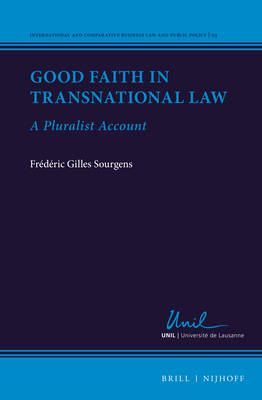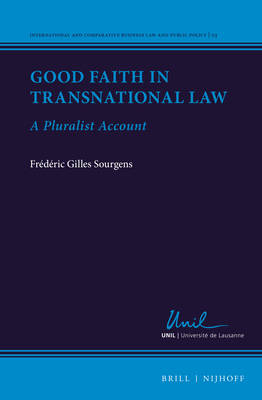
- Afhalen na 1 uur in een winkel met voorraad
- Gratis thuislevering in België vanaf € 30
- Ruim aanbod met 7 miljoen producten
- Afhalen na 1 uur in een winkel met voorraad
- Gratis thuislevering in België vanaf € 30
- Ruim aanbod met 7 miljoen producten
Zoeken
Omschrijving
Transnational law currently appears fragmented and captured by self-interested corporate actors. Good faith is at the heart of this fragmentation. To defend transnational law thus requires an account of good faith. Good Faith in Transnational Law explains and recasts fragmentation and capture as something valuable, and casts good faith as an obligation of other-regarding communicative conduct. Frédéric Gilles Sourgens argues that the fragmentation we experience is a virtue: for communication across vastly different commercial, economic, social, cultural and linguistic contexts to remain legally meaningful, we must translate our different expectations into a shared, context-bound idiom. He argues that law harnesses stress of such translations through stress fields that reintegrate the different experiences in a shared transnational discourse.
Specificaties
Betrokkenen
- Auteur(s):
- Uitgeverij:
Inhoud
- Aantal bladzijden:
- 448
- Taal:
- Engels
- Reeks:
- Reeksnummer:
- nr. 3
Eigenschappen
- Productcode (EAN):
- 9789004522374
- Verschijningsdatum:
- 22/09/2022
- Uitvoering:
- Hardcover
- Formaat:
- Genaaid
- Afmetingen:
- 157 mm x 236 mm
- Gewicht:
- 748 g

Alleen bij Standaard Boekhandel
+ 464 punten op je klantenkaart van Standaard Boekhandel
Beoordelingen
We publiceren alleen reviews die voldoen aan de voorwaarden voor reviews. Bekijk onze voorwaarden voor reviews.








